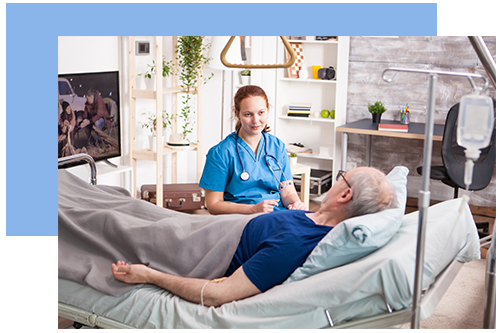
Routine Home Care
Patient at home with symptoms controlled
Daily scheduled appointments to discuss the physical, mental, and spiritual requirements of hospice patients and their caregivers are part of routine strong home care treatment. Whether in a traditional apartment, nursing home, assisted living facility, or another setting, the hospice team visits patients’ homes.
Nurses, home health aides, hospice chaplains, social workers, clinicians, and volunteers provide support. Patients now have access to home emergency devices, prescriptions, personal supplies, and 24/7 on-call nurse assistance.



